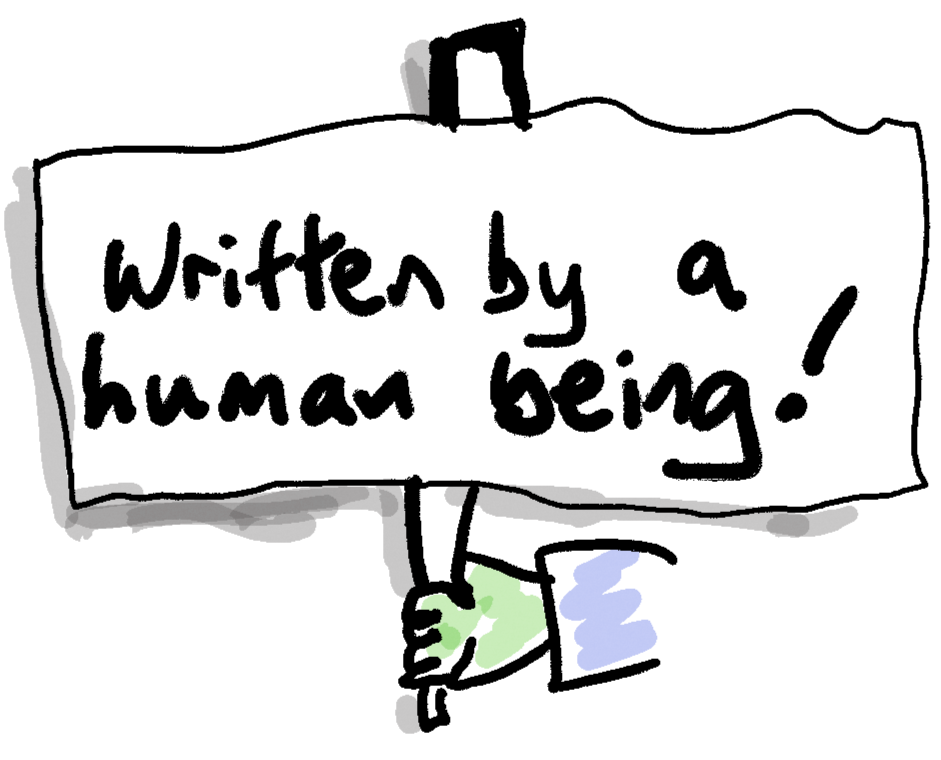I remember this exhibtion: it was pretty good, and I’m not somebody who is easily impressed. I thought the ideas were very creative, and I liked the interactivity.
Read MoreAn invidious comparison
I can say without hesitation that the most costly students in terms of my time are the ones who do the work and hand something in each week.
Read MoreAI guides, and student involvement
I keep seeing blog articles and guides about using AI in education, and they mostly seem to be a form of painting by numbers.
Read MoreOulipo word cloud
The value of constraints: a note about the Oulipo and computing
The early Oulipians in particular were interested in how mathematics and literature could be combined. Calvino, for example, wrote about using cybernetics in literature.
Read MoreIs a ‘Digital Champions’ Scheme a Great Way to Provide Learning Opportunities, or Just a Budget Version of Tech Support?
There is little doubt that youngsters tend to be very quick at picking things up when it comes to technology, and are just as keen to pass on their knowledge to others.
Read MoreForward 10 places!
8 Ways to make physical computing work in a NORMAL classroom
If you insist on getting the kids to make or use physical computing kits/robots in the classroom, here arte 8 suggestions for making sure it’s all useful.
Read MoreThey're not that shocking, surely?
6 Outlandish things to do in your Computing lesson
Why not try something different in your Computing lessons? Here's a short list of suggestions.
Read MoreReasons to teach coding through problem-solving
Should you start with the raw components when teaching coding, or get the kids problem-solving immediately? This article argues in favour of the latter.
Read MoreBe aware! By Terry Freedman
Robotics is STILL a waste of time
I’d rather teach pupils to program without going through the intermediary process of building a robot or anything else. Despite all the hype, I regard it as a massive waste of time.
Read MoreReview: Social Media for Academics
This book is very readable, and if I sound surprised that is because it’s not always true of academics!
Read MoreQuick looks: VIBE Coding by Example
For the time being, this book is free in Kindle format.
Read MoreWhy you should review your education technology purchasing plans
Having taken a decision, you can’t just leave it. You have to review it at some point.
Read MoreReview: The Game Changers: How Playing Games Changed the World and Can Change You Too
Despite the relative paucity of immediately obvious National Curriculum links, teachers will find several of sections of this book to be highly engaging.
Read MoreReview: The Dictators: 64 Dictators, 64 Authors, 64 Warnings from History
In some respects one could view this book as a single warning repeated 64 times.
Read MoreReview: The Bookshop, The Draper, The Candlestick Maker: A History of the High Street
Taking readers from the Middle Ages to (more or less) the present day, Gray charts how the places where we do our shopping and what we buy have changed over the centuries.
Read MoreOn this day: Set trivial assignments for students of Computing stuck at home
Why set students real-world, life-changing, humanity-saving problems when trivial challenges are likely to prove equally, if not more, useful?
Read MoreReview: Extraordinary Learning For All
As a source of potential ideas and inspiration, the book could be very useful indeed.
Read MoreCollective nostalgia about computer programming
Almost nobody needs a gasp of computer programming, and even fewer need to know how computers actually work.
Read MoreIllustration of algorithmic objectivity, generated in ImageFX
Computing discussion topic
A topic to discuss with your students perhaps: the hidden bias in algorithms.
Read Morecartoon to illustrate a failed edtech project, generated in ImageFX
22 reasons that education technology projects fail
Why do some school and local authority initiatives, not to mention government initiatives, fail, especially when they concern education technology?
Read More














